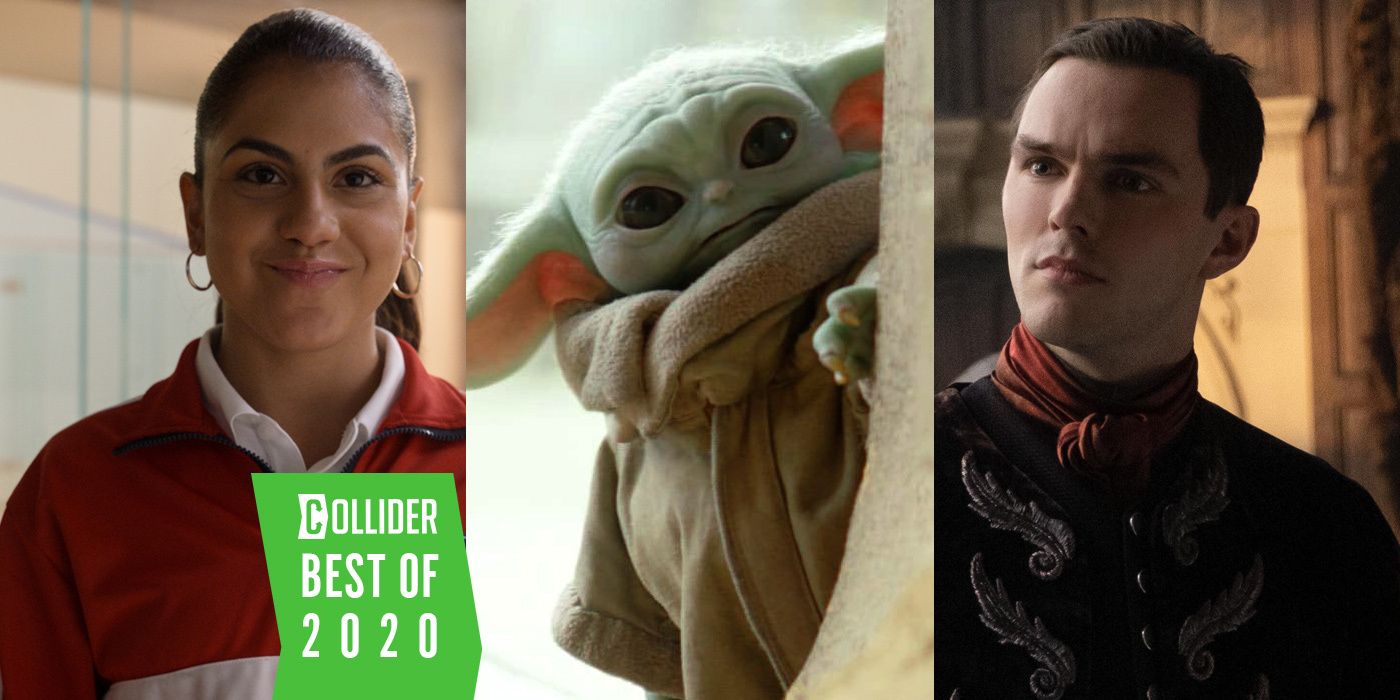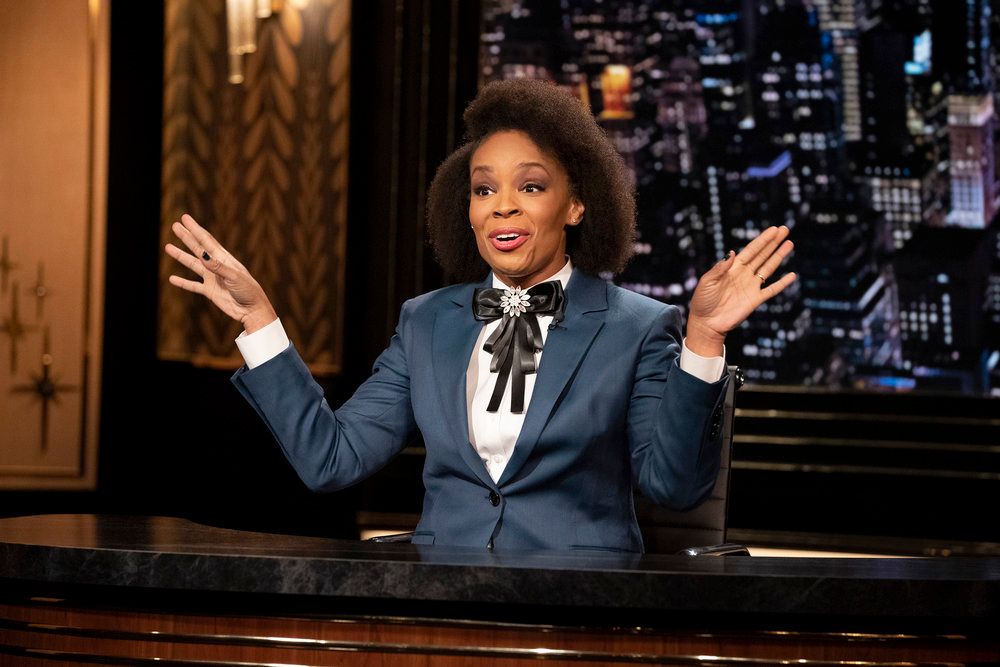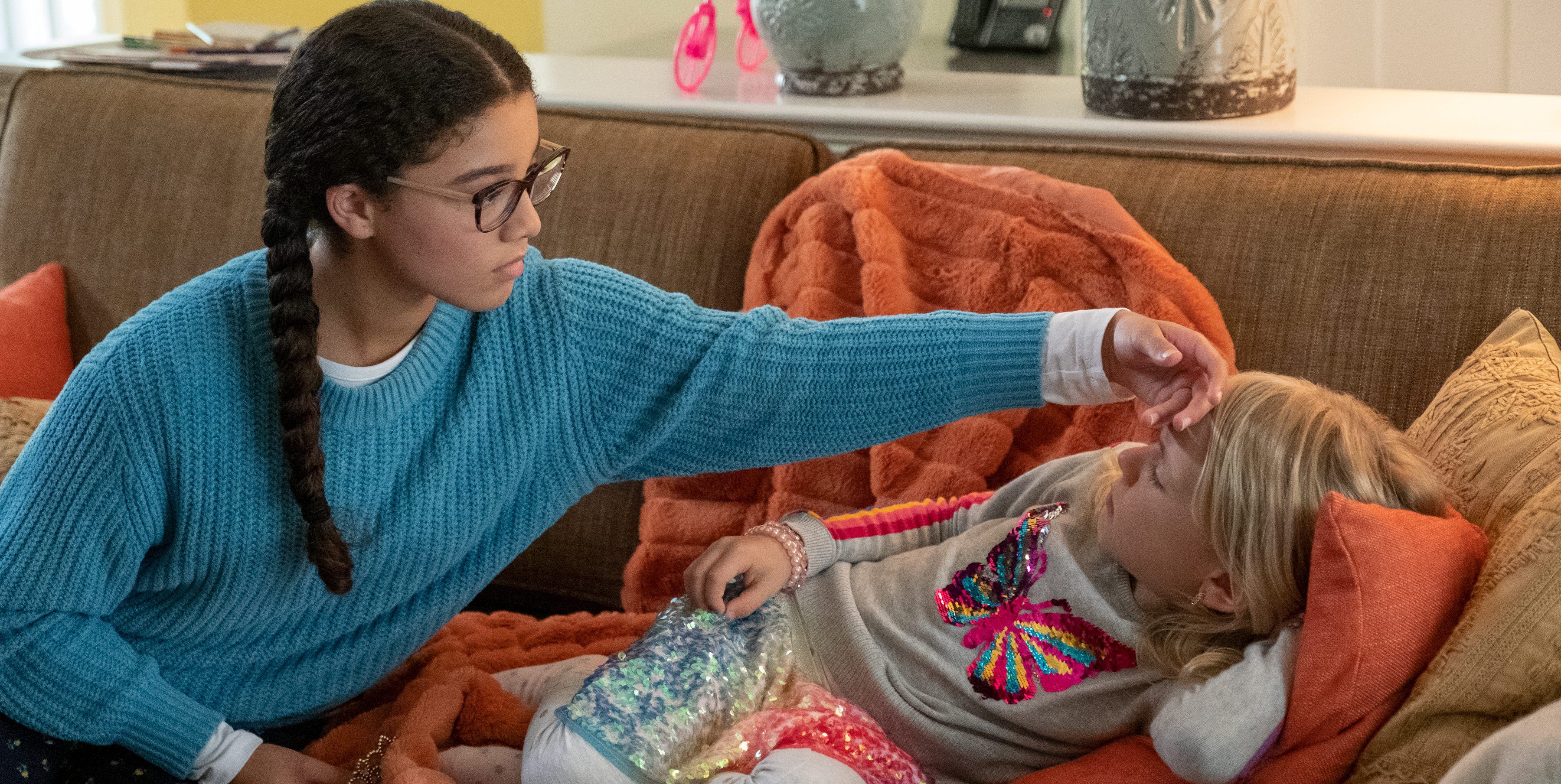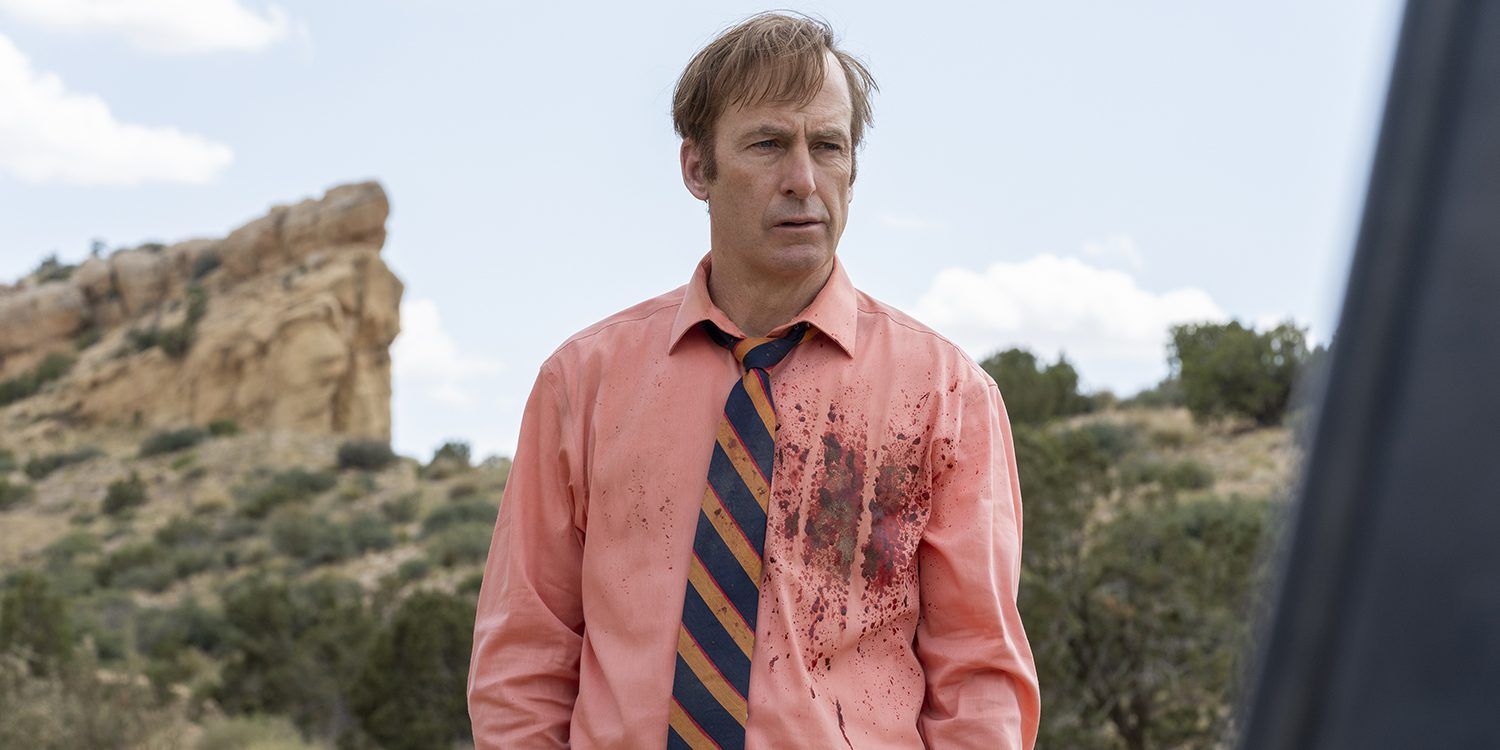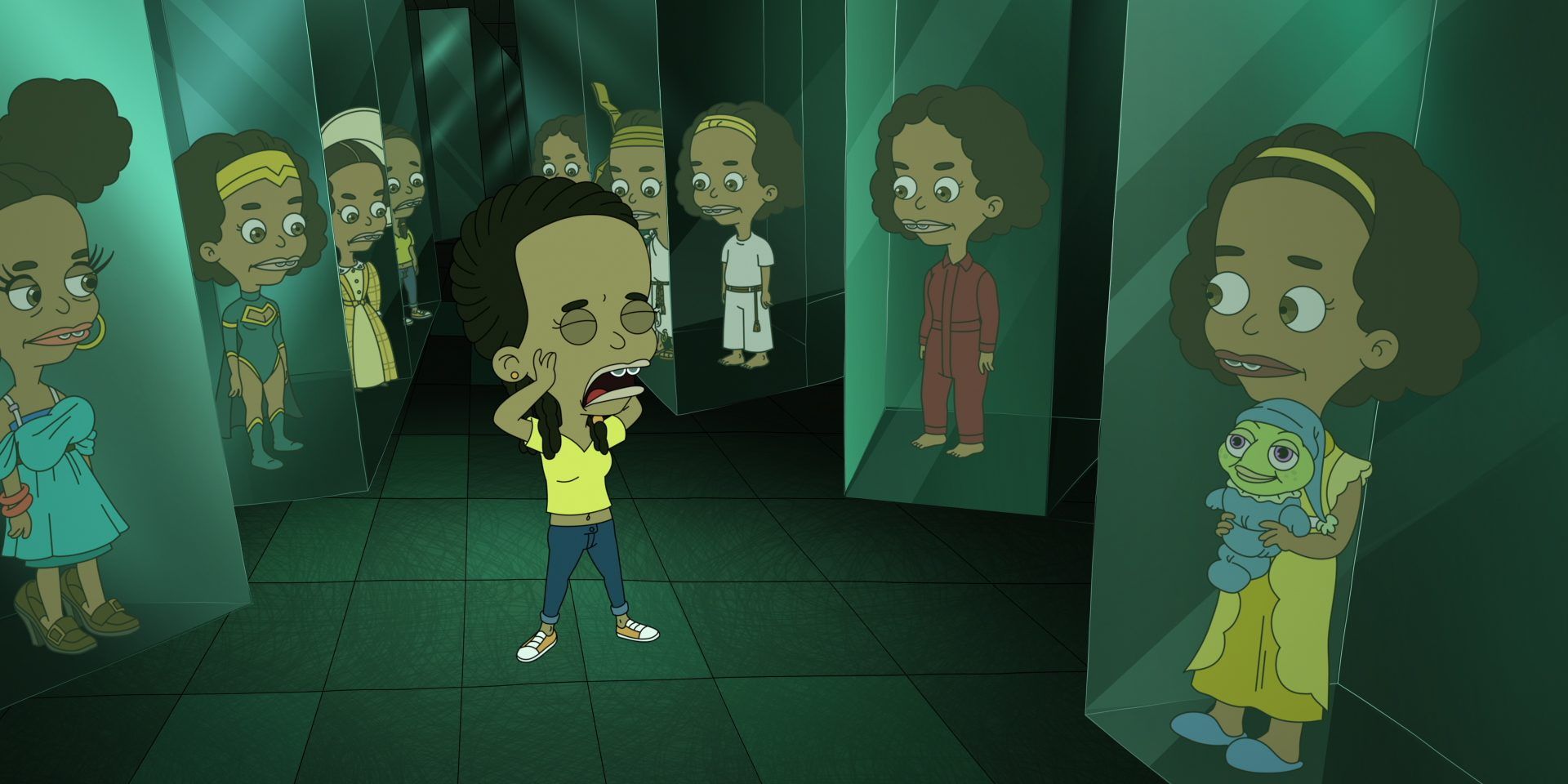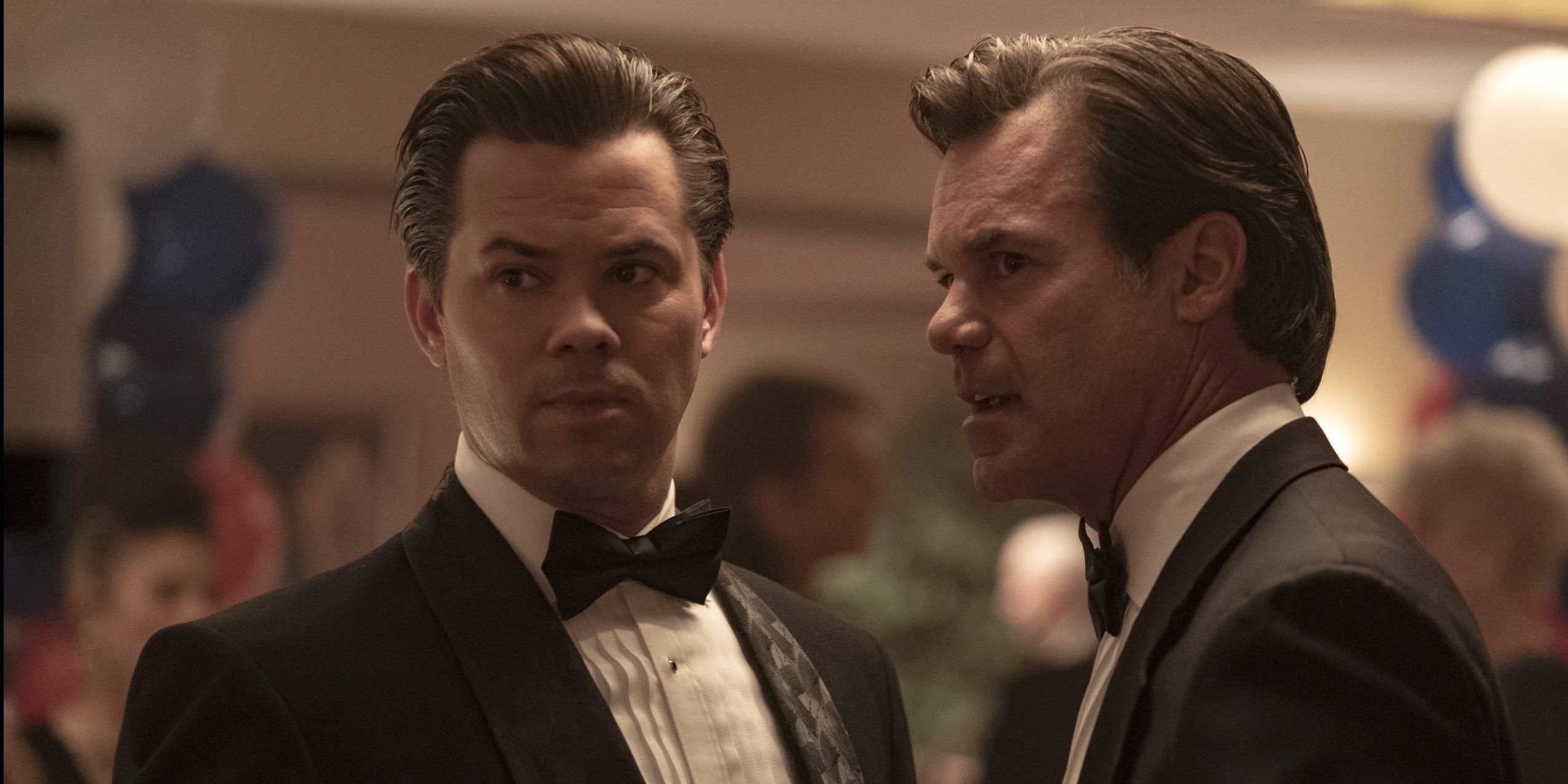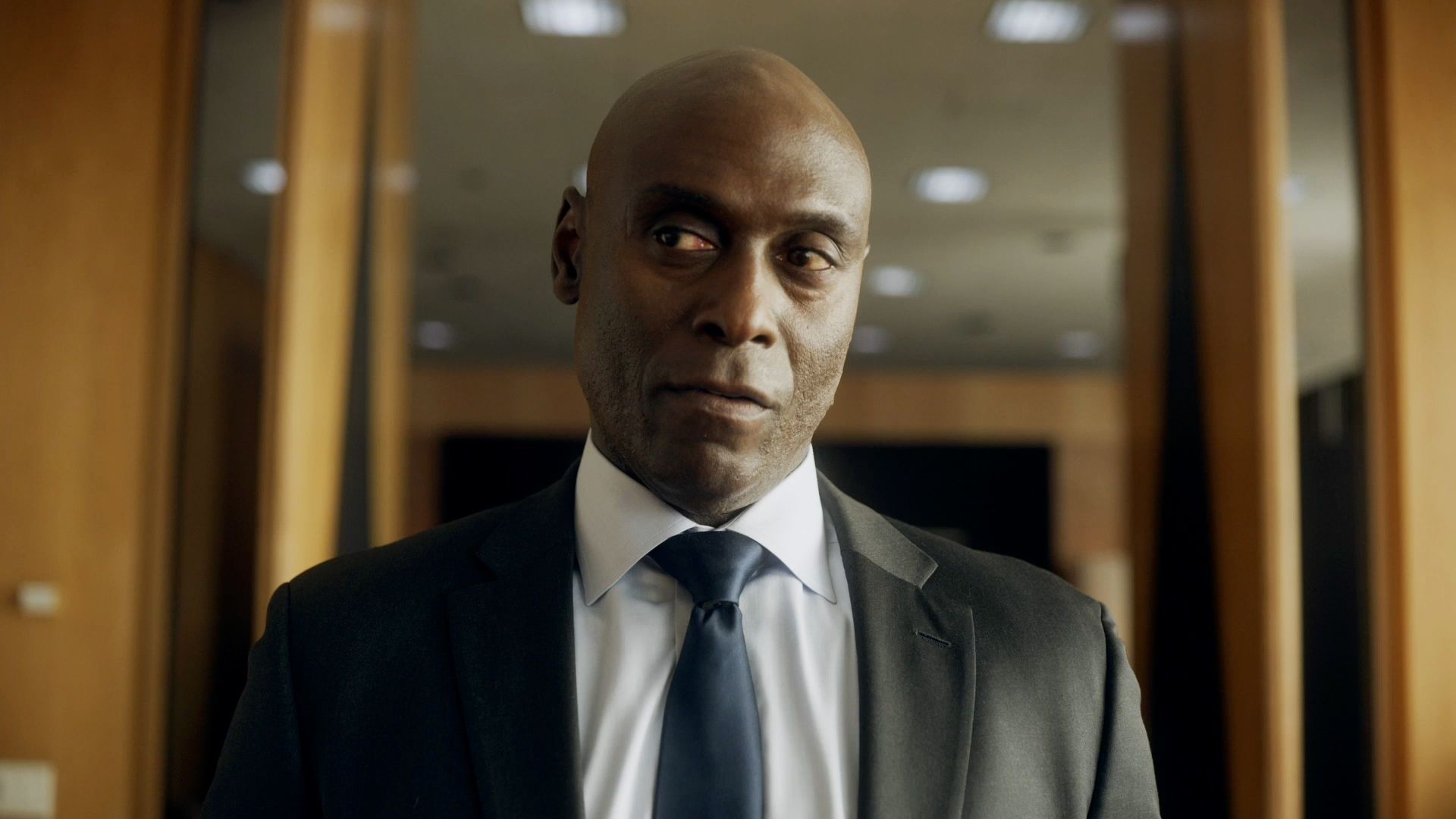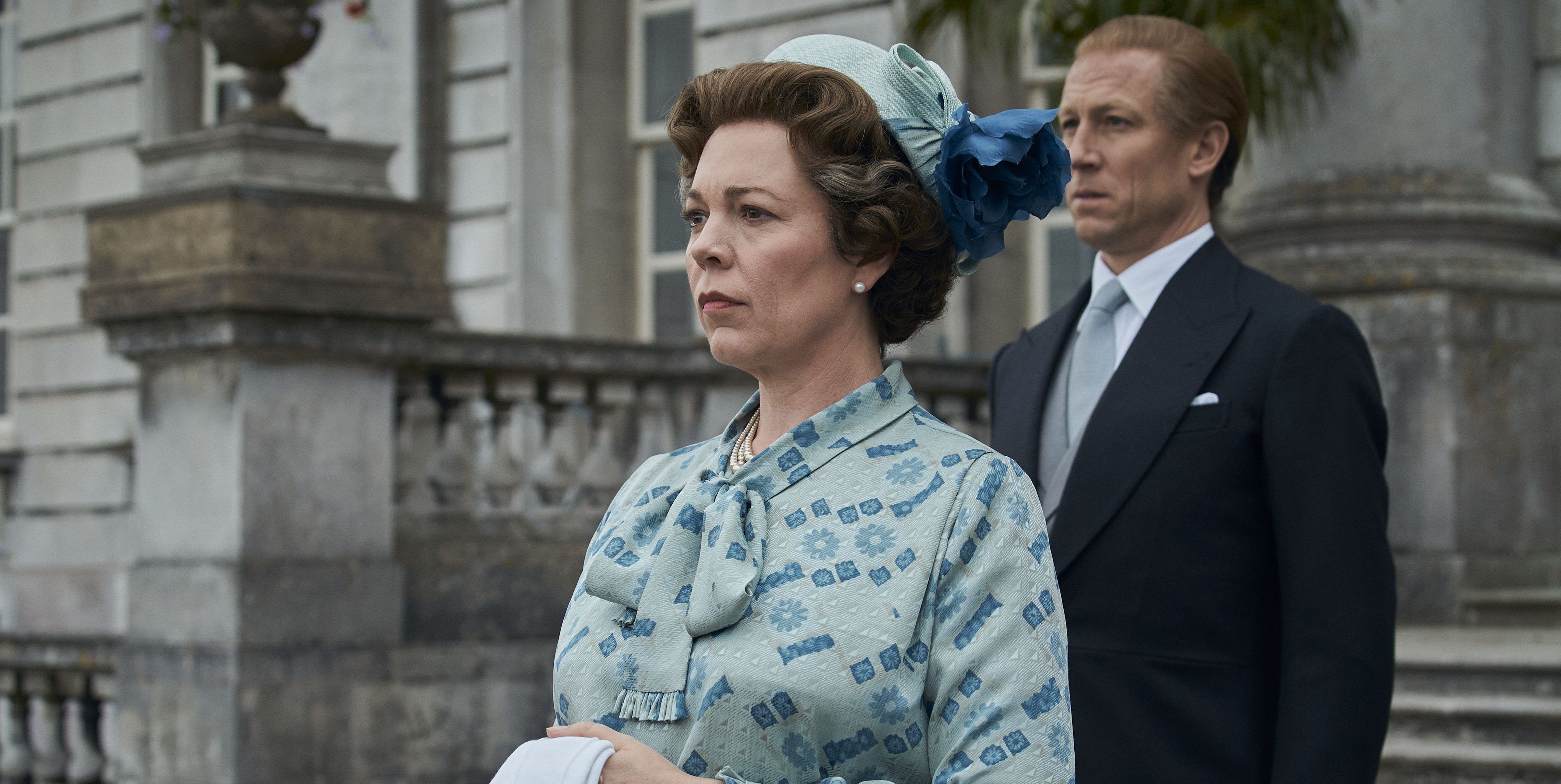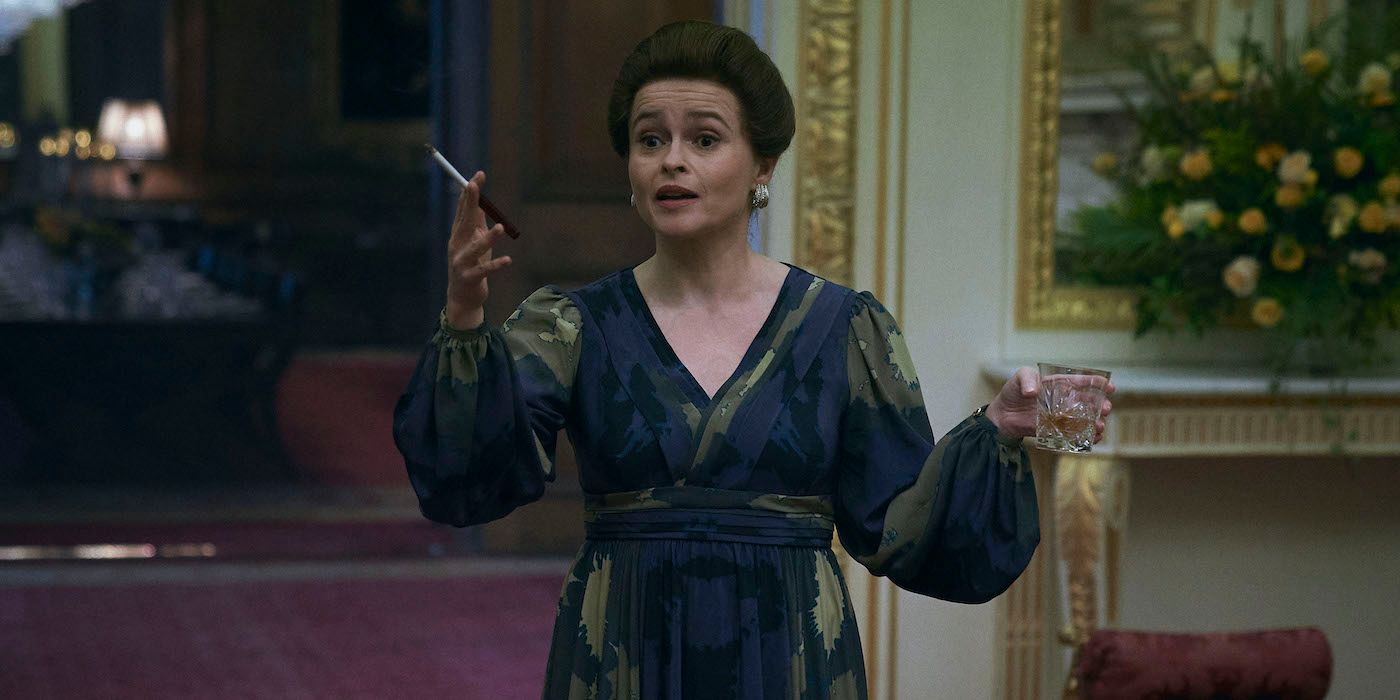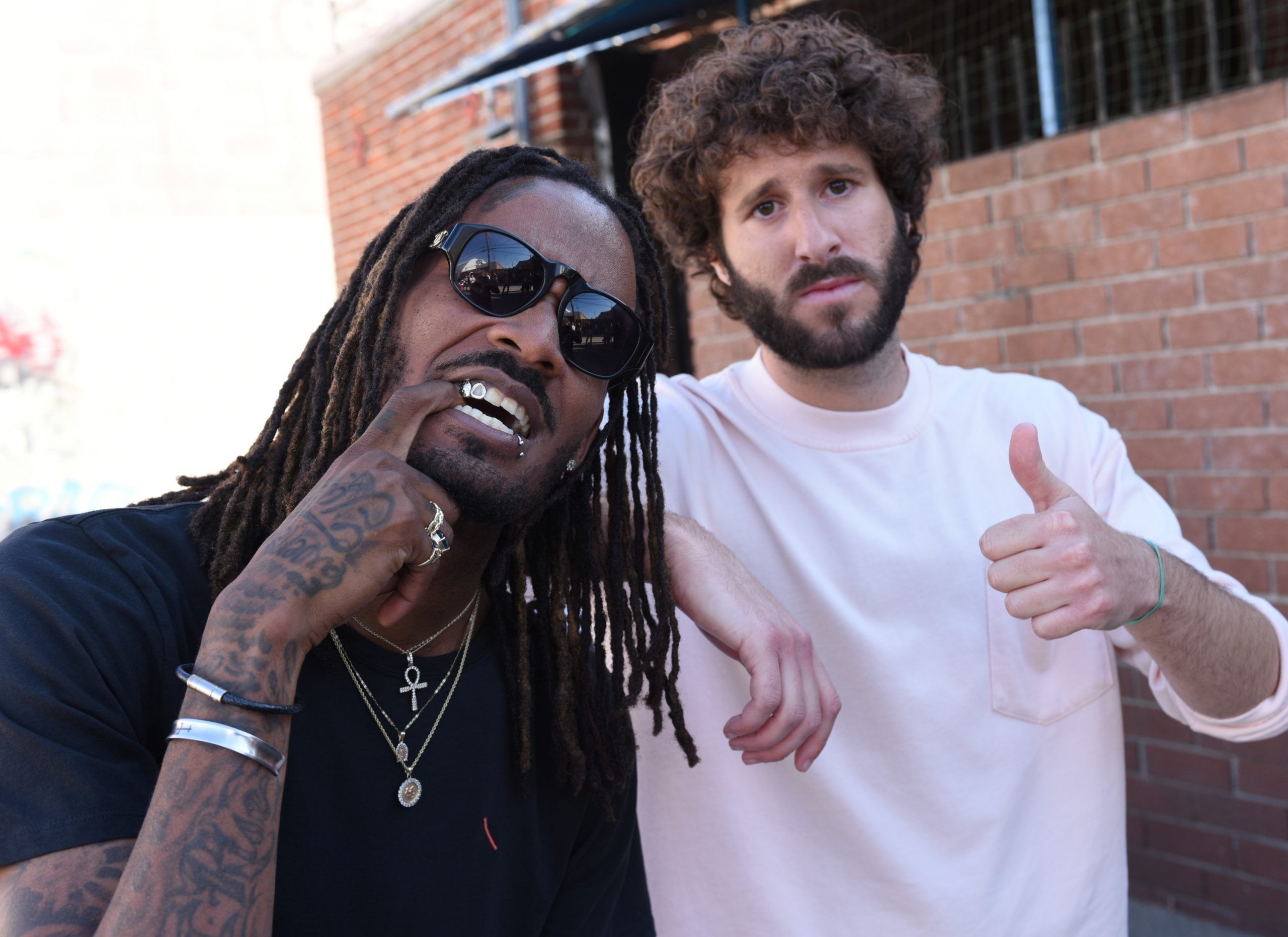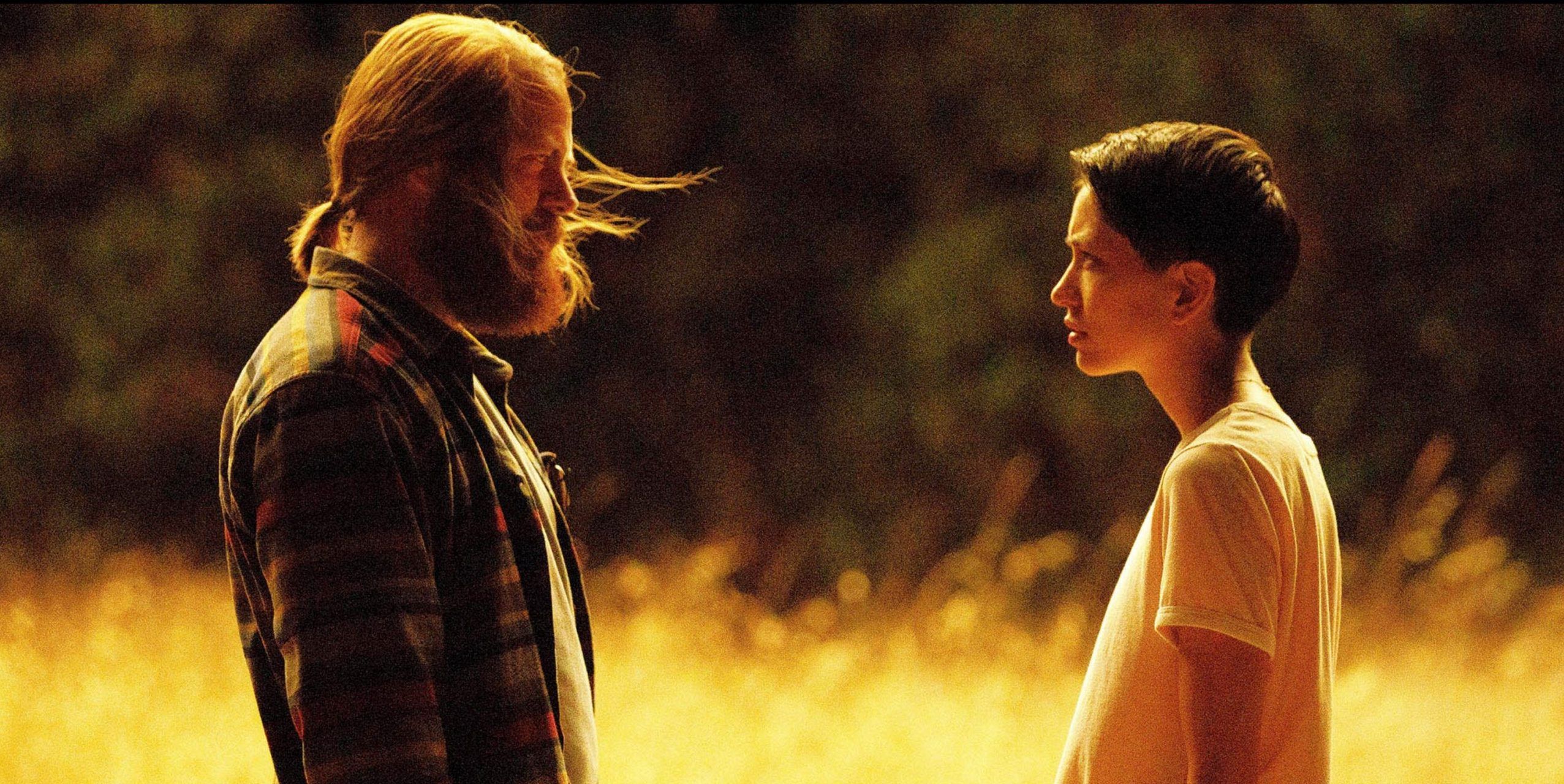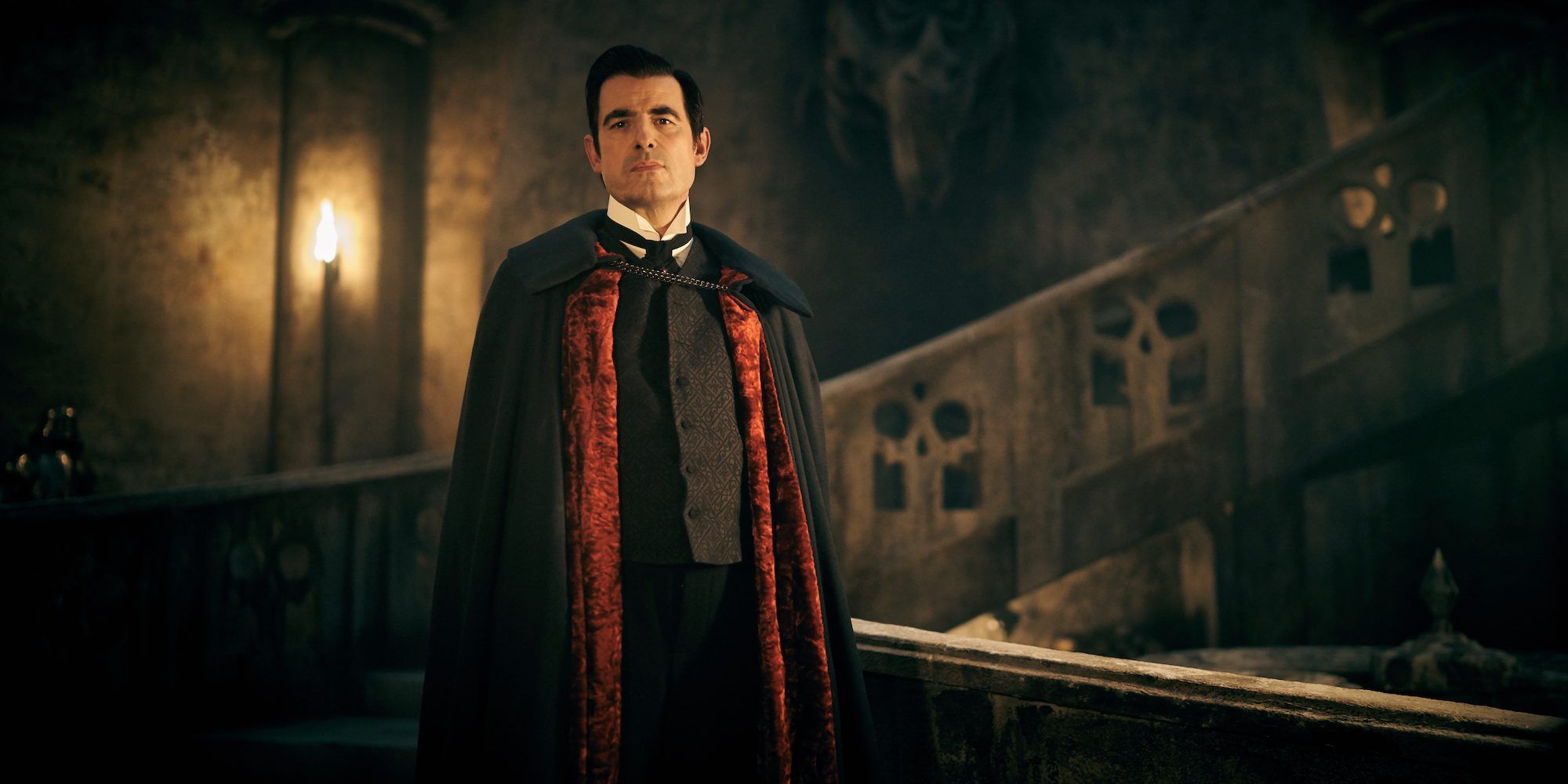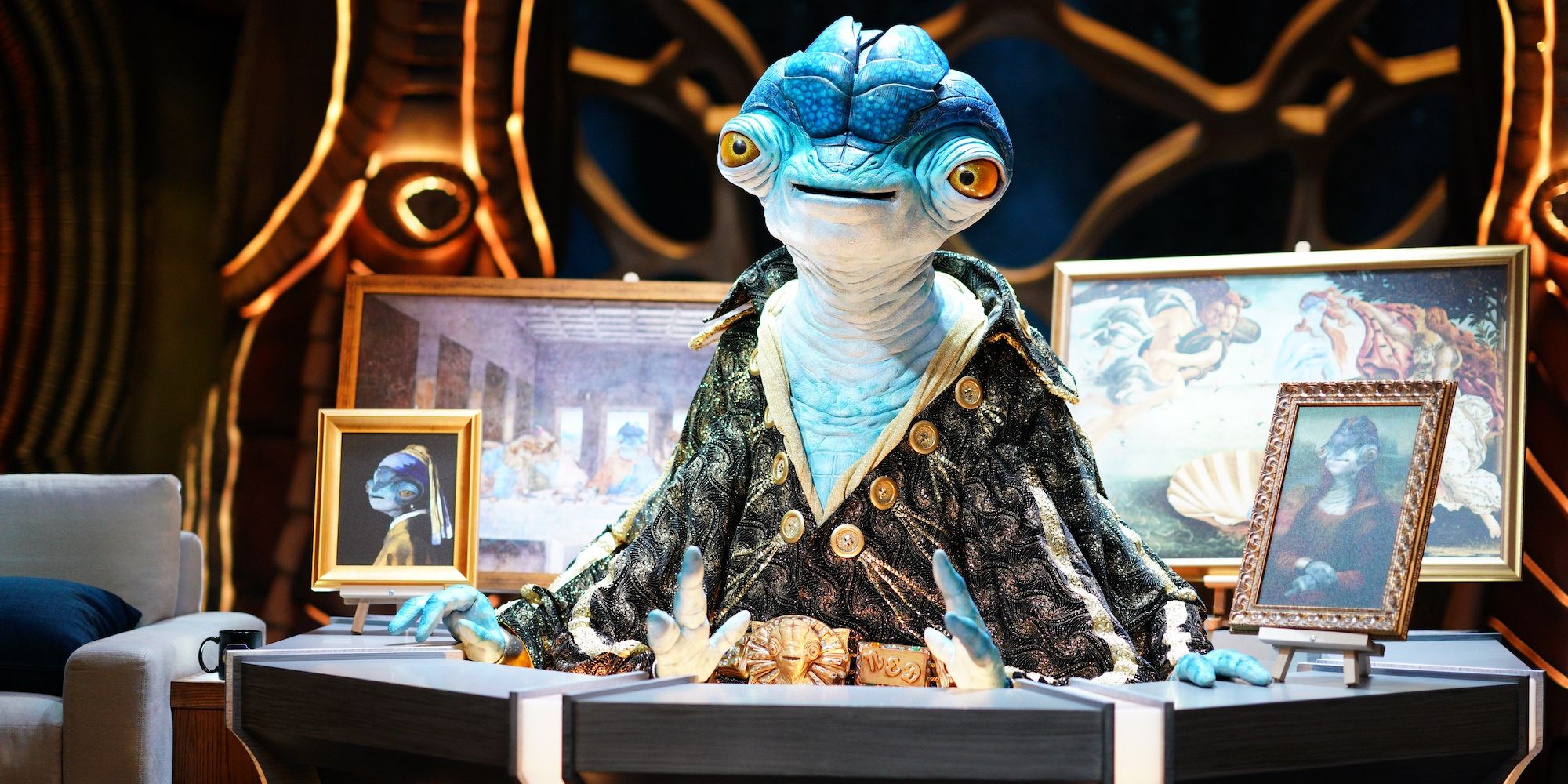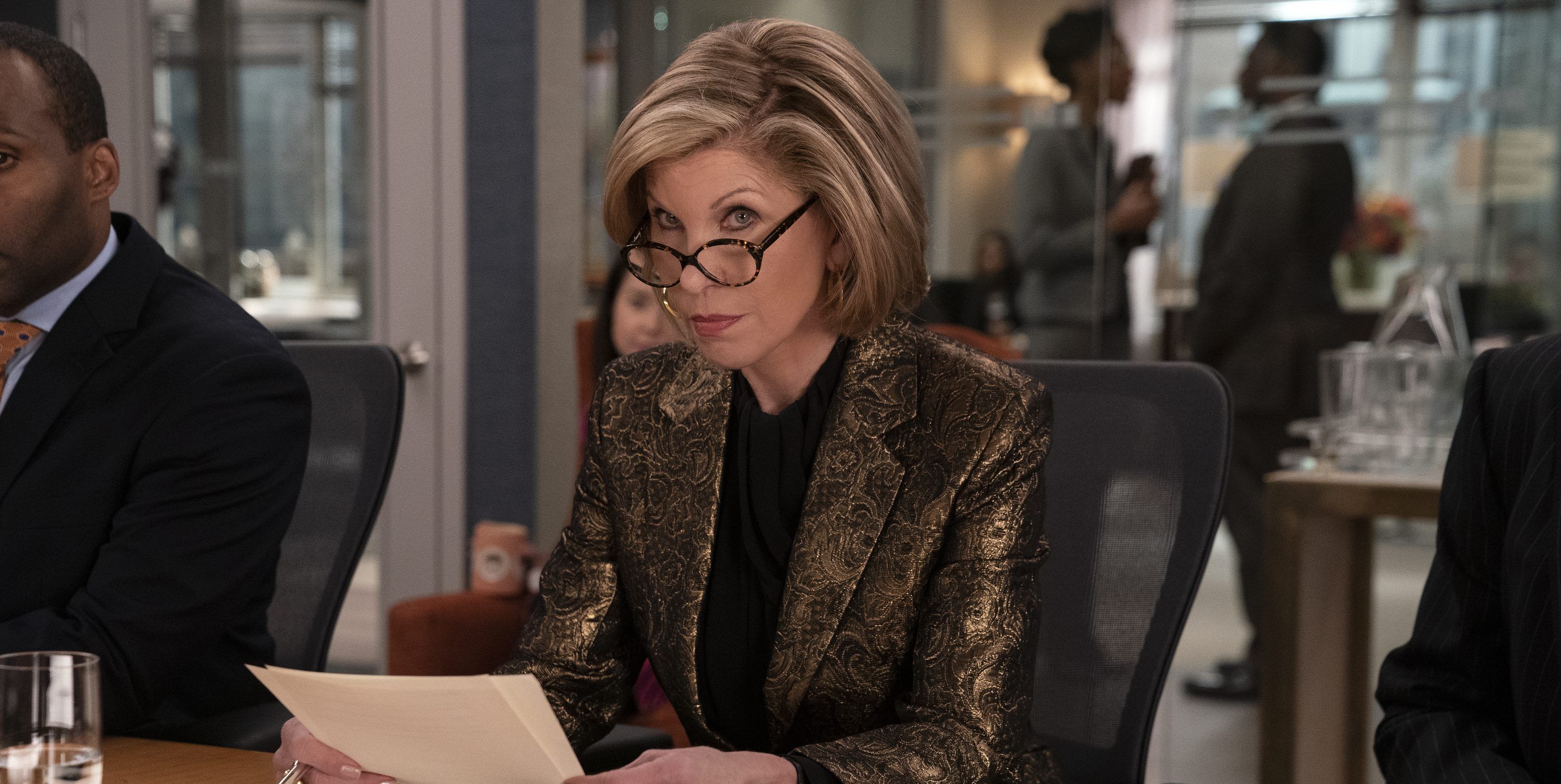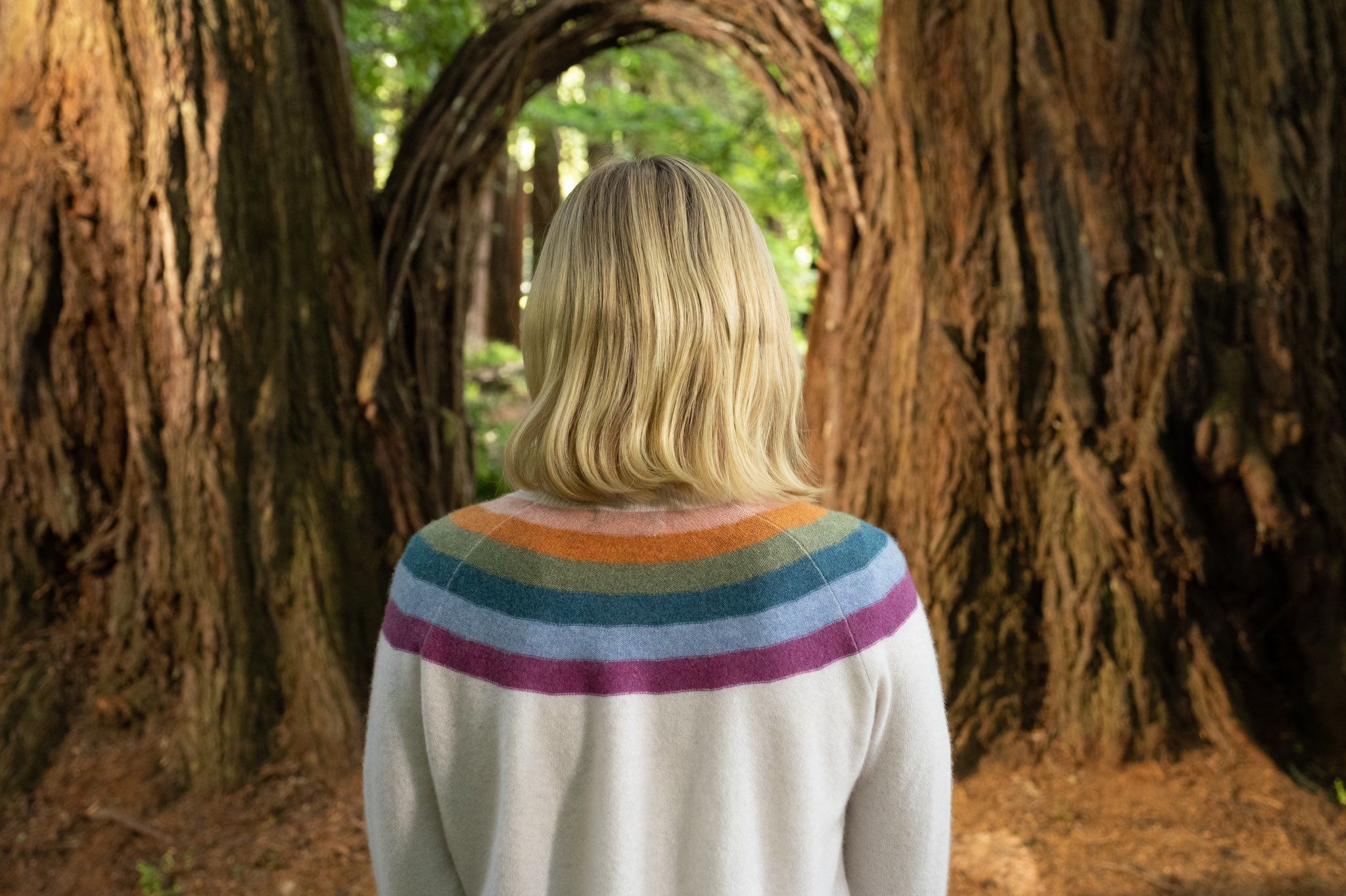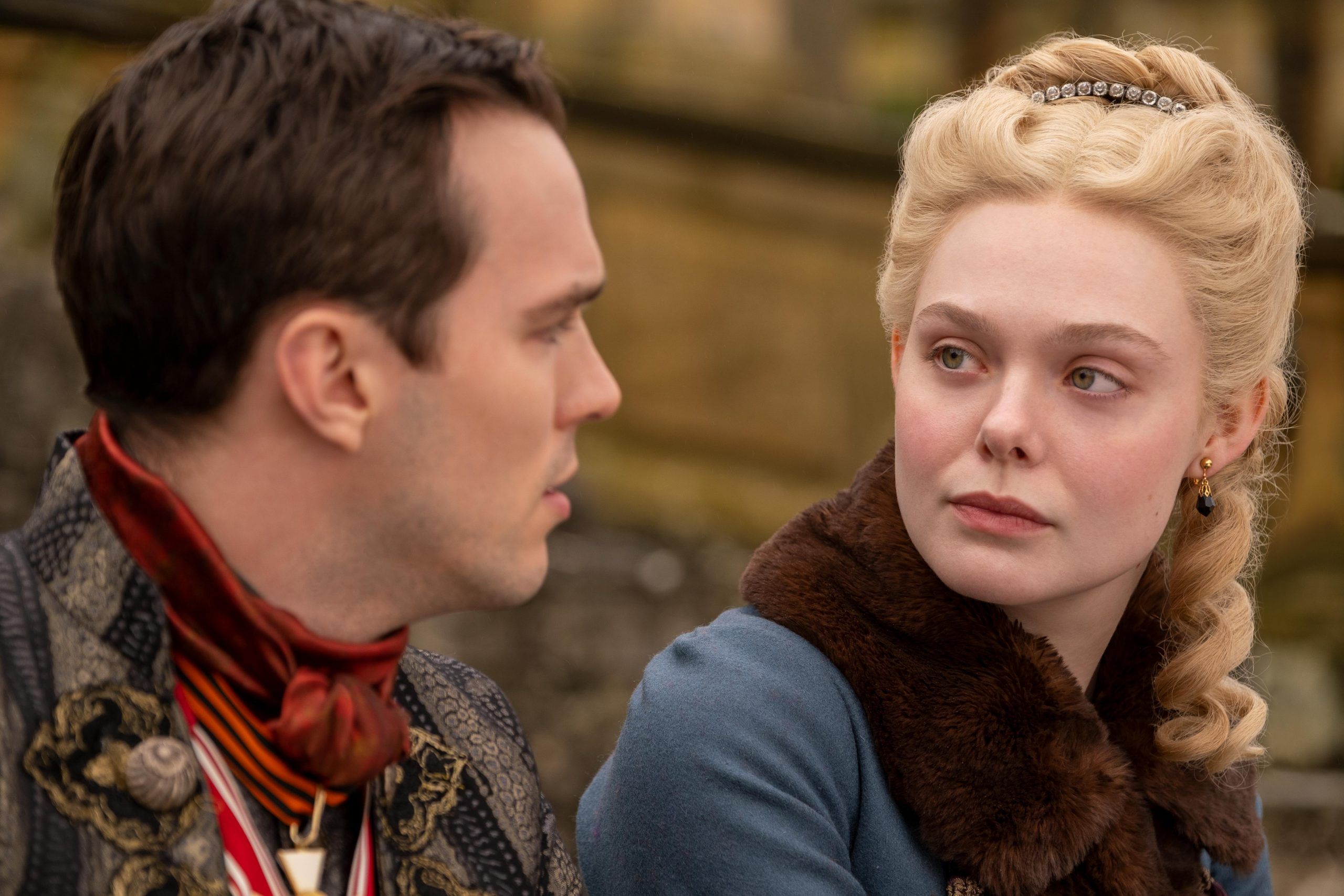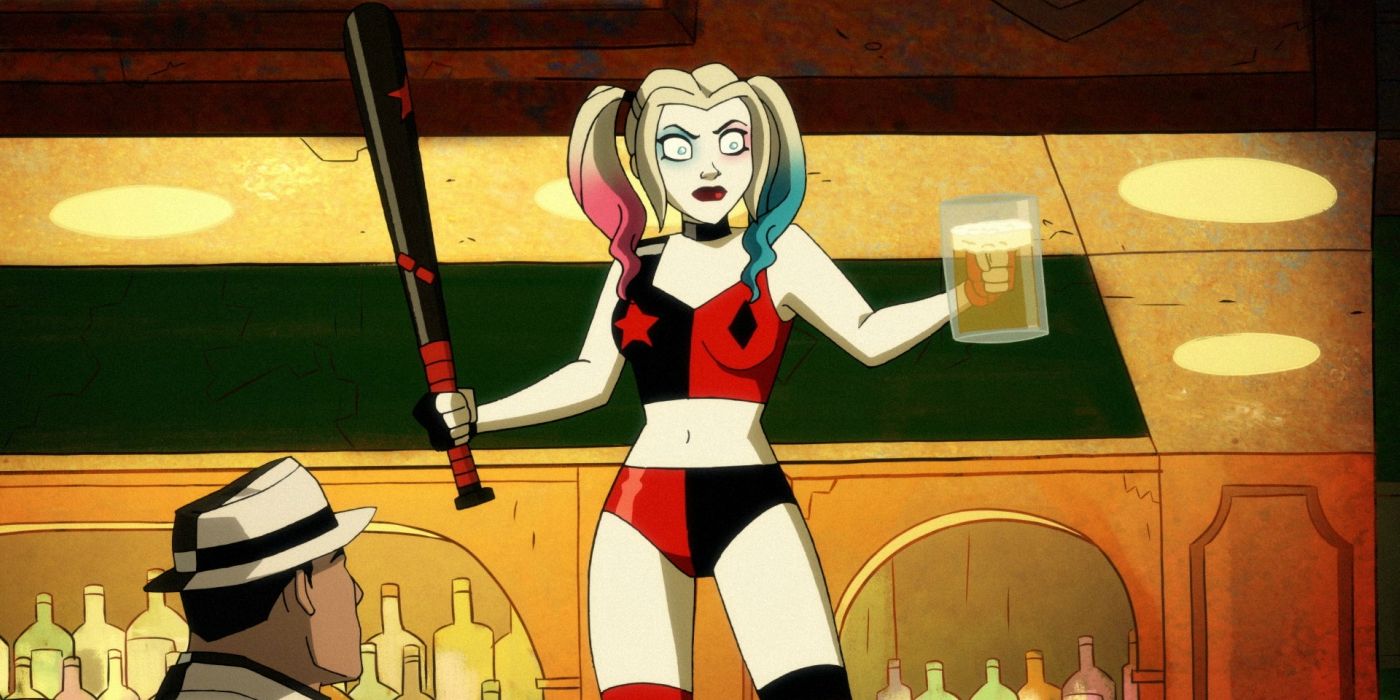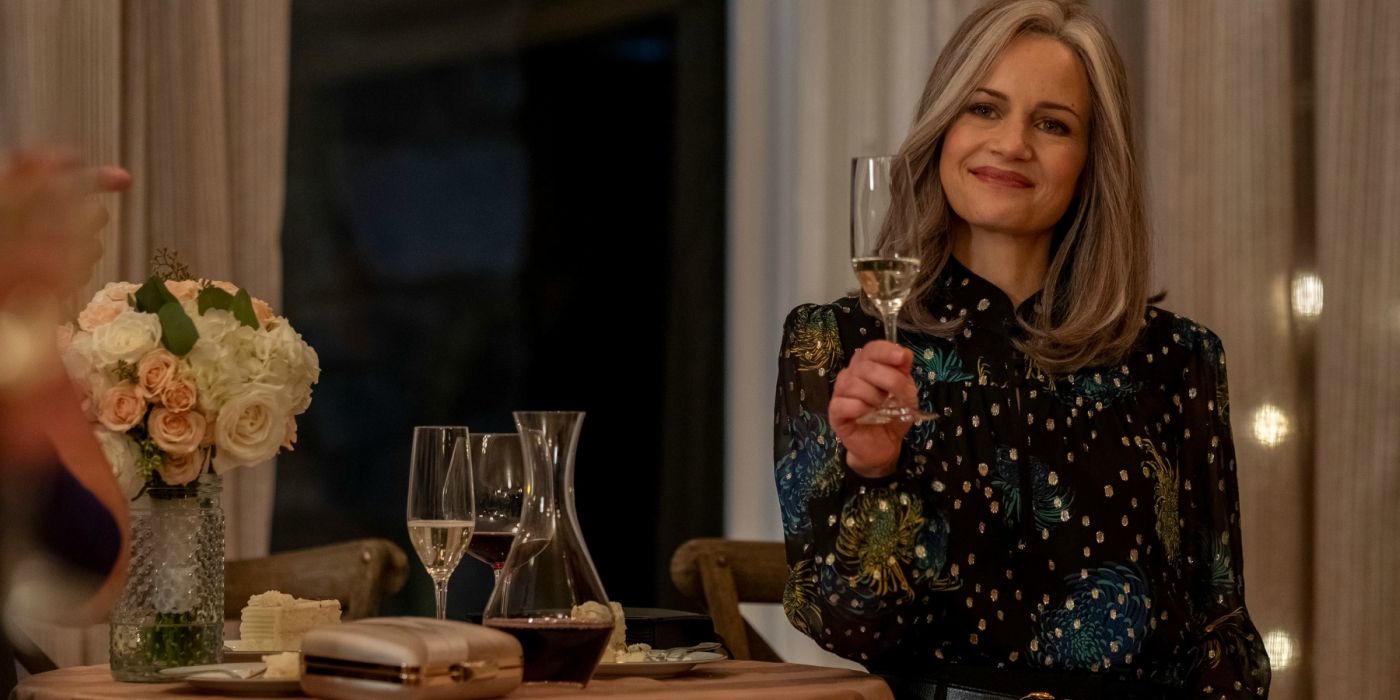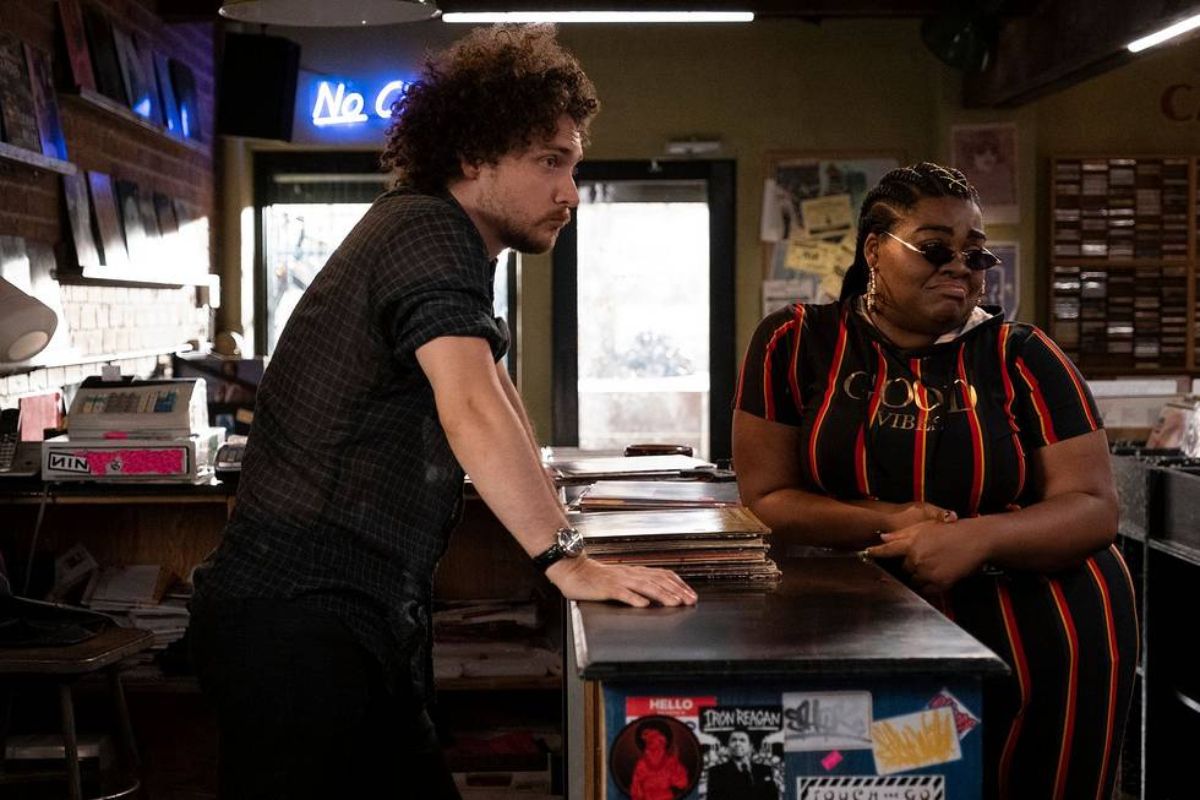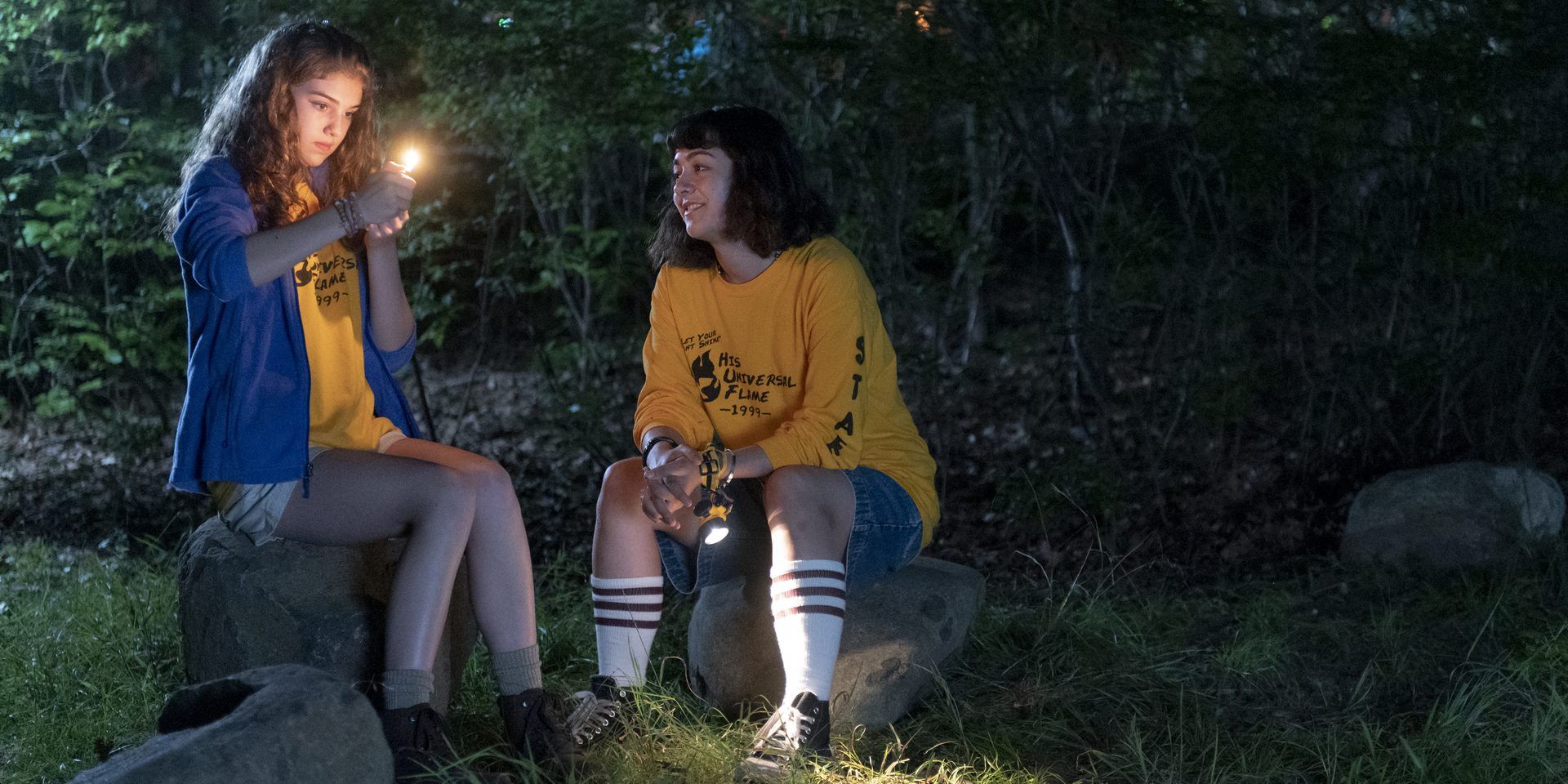This list of the Best TV Episodes of 2020, we full admit, is lengthy. That's because 2020 was a truly exciting year of television, one where (even despite, y'know, a pandemic) there was so much great work done that it deserves to be highlighted in some way.
The below list celebrates comedy, drama, and the realms in between across broadcast, cable, and streaming platforms — in a crappy year, we were once again so blessed to be united by so many great series that made us laugh/think/dream/believe/cry/all of the above. We have already named our Top 10 shows of the year, and there's plenty of overlap below. What matters is this: Hopefully, this list below, listed alphabetically, might expose you to some great shows you might take some time to discover.
The Amber Ruffin Show, Episode 1
Season 1, Episode 1
It’s hard to pick a standout episode from the new weekly Peacock late night series The Amber Ruffin Show, but it’s absolutely worth noting that this series really seemed to premiere fully formed. That’s not something you can say about most late night shows – even Late Night with Seth Meyers took months to find its feet. But right off the bat, Ruffin nailed this “Late Night meets Mister Rogers” tone as the show tackled everything from the coronaviruas to continued transgressions against Black people with a mix of comedy and abject frustration. But as justifiably angry as The Amber Ruffin Show got, there was always an air of empathy throughout, a “you matter” throughline that made a direct connection from host to viewer. For even the most seasoned of hosts this tight-rope walk would prove challenging, but it’s a testament to Ruffin’s talent, hard work, and charismatic personality that she pulls it off with ease. The Amber Ruffin Show is a gift. – Adam Chitwood
The Baby-Sitters Club, "Mary Anne Saves the Day"
Season 1, Episode 4
The Netflix original series The Baby-Sitters Club felt like a very welcome breath of fresh air this year. While generally aimed at tween viewers, The Baby-Sitters Club was also a major dose of nostalgia for Millennials who grew up reading the Ann M. Martin book series of the same name, watching the short-lived 1990 Baby-Sitters Club TV series, and/or indulging in repeat viewings of the 1995 movie. What makes this new generation of The Baby-Sitters Club so darn enjoyable is the way it smartly injects modern ideals and storylines into its classic set-up. This is perhaps most evident in Episode 4, “Mary-Anne Saves the Day,” which sees the shy, sweet Mary-Anne Spier (Malia Baker) tested when she is forced to assert herself and advocate for those who cannot advocate for themselves. In this case, it is Mary-Anne’s young transgender charge, Bailey, who needs her babysitter’s help. A trip to the emergency room while Mary-Anne is babysitting Bailey causes concern because both the doctor and the nurse treating Bailey misgender their patient — something Mary-Anne recognizes is wrong and needs to be corrected. Not only does the episode show how Mary-Anne can grow into a more assertive person, but it beautifully handles its depiction of Bailey as a trans girl. Bailey is shown to be loved and accepted by her parents, embraced by Mary-Anne, and defended by those who care for her when a situation arises. The Baby-Sitters Club shines a light on a sensitive topic in a mature, compassionate manner that helps illustrate how to act in a situation like the one Mary-Anne and Bailey find themselves in without feeling like an after-school special. — Allie Gemmill
Better Call Saul, "Bagman"
Season 5, Episode 8
It’s been clear for some time now that Better Call Saul has surpassed the brilliant Breaking Bad in quality. That’s not a dig against Breaking Bad, but a testament to how the team behind BCS have refined their craft so completely, resulting in something nearing perfection. And while Better Call Saul wrings more tension out of conversations between characters than shootouts, Season 5’s episode “Bagman” felt like a throwback to the Breaking Bad era in the best way. Breaking Bad creator Vince Gilligan returned to direct this installment of BCS, which found Jimmy (Bob Odenkirk) stranded in the desert, rescued by Mike (Jonathan Banks), only for both of them to then be stranded together under significant threat to their lives. It’s a largely wordless episode, but that’s never been a problem for this franchise – the visual storytelling in “Bagman” (and on BCS as a whole) is masterful, building to an emotional epiphany for Jimmy about his relationship to Kim (Rhea Seehorn). Perfection. – Adam Chitwood
Big Mouth, "Horrority House"
Season 4, Episode 9
Big Mouth is such an excellently enmeshed show, a comedy where even its grandstanding “gimmick” episodes fit into, challenge, and ultimately further the narrative. Case in point: “Horrority House,” the penultimate episode of the excellent Season 4. While on paper this feels like a “self-contained horror episode,” where our gang enters a sorority sponsored-haunted house and gets into spookier-than-usual antics, in practice each vignette speaks specifically to what our characters have been struggling with the entire season, blowing them out to genuinely scary places before rebuilding and resolving them. All of the characters get brilliant, premise-transcending moments to shine, but I’m particularly impressed with and optimistic for the future of Missy. Not only does this episode give her a shining, bright future moving forward, but it does so addressing the metatextual casting controversy and changeover, from Jenny Slate to Ayo Edebiri, while saying about as explicitly as possible that she will be more authentic from now on. What an episode, what a show! - Gregory Lawrence
Black Monday, "Lucky Shoes"
Season 2, Episode 8
The Showtime comedy is not afraid of dark subject matter, but the devastating final moments of this twisty episode, in which Blair Pfaff (Andrew Rannells) makes a big business play with massive repercussions for his relationship with Congressman Roger Harris (Tuc Watkins), ensures an unforgettable memory. Black Monday is a very hard show to define, but it has a take on '80s Wall Street culture that never overlooks the human cost. - Liz Shannon Miller
Central Park, "Skater's Circle"
Season 1, Episode 2
In just its first season, in just its second episode, Central Park fosters its own essential identity and delivers a blast of joyful, life-affirming, and inspiring half-hour television. Combining both the teenage doldrum-exploration of a Big Mouth with the wholesome family-exploration of a Bob’s Burgers (while adding elements of class, gentrification, and, oh yeah, being a freakin’ musical to its repertoire), Central Park invites you into its world efficiently, joyously, and buoyantly. “Skater’s Circle” tells two tales of not fitting in: Our daughter Kristen Bell feeling like an outsider from every element of adolescence, and our father Leslie Odom Jr. feeling like an outsider from, well, a cool roller-blader (Christopher Jackson, Odom’s Hamilton castmate) who’s taken up a skating route in Central Park. Both characters have exquisite, beautiful, immensely catchy songs to explore these emotions, with Bell’s “Weirdos Make Great Superheroes” serving as the melancholy question, and Jackson and company’s “Do It While We Can” serving as the raucous answer. These songs will stop you in your tracks, these characters will make you feel and feel some more, and oh yeah, there’s a ton of jokes, too! - Gregory Lawrence
Corporate, "Pickles 4 Breakfast"
Season 3, Episode 1
The Comedy Central series' final season was packed with brilliance, but "Pickles 4 Breakfast" was one of the most brilliant satirizations yet of how streaming culture has affected television — on a multi-generational level. Between algorithmically-driven childrens' programming and the ways in which "prestige" TV can disappoint us, Corporate was the best sort of comedy, one that highlighted the truth of our reality. - Liz Shannon Miller
The Crown, "Fagan"
Season 4, Episode 5
Season 4 of The Crown has felt different in a lot of welcome ways. For me, I’m most impressed and intrigued by its different entry points into its central storylines. We’re no longer ceaselessly insulated within the Royal Family and their various problems; we’re attacking them from more easily-aligned vantage points, coming up with welcome criticisms and challenges along the way. Case in point: “Fagan,” an episode I have not been able to stop thinking about; an episode which demands not just its viewers but its Queen (Olivia Colman) to change the lens of how you view history and society immediately. Our title character, played with equal parts unpredictability and empathy by Tom Brooke, is a man who broke into the Queen’s bedroom and spoke with her, mere inches away from her, for several unbroken minutes before being captured. Terrifying, right? Yes, but “Fagan” does one hell of a job explaining the socioeconomic prospects, the nightmarish web of tunnels that is “a government trying to make an actual difference”, and the endlessly frustrating gulf between performance and results that led him to this decision. Plus, we actually get to see the Queen’s reaction to this decision, and get to see how it may have even positively affected or changed her. 2020 was a year of protest, of rebellion, of government incompetence laid bare; somehow, a pretty show about a pretty royal family met this moment and then some in “Fagan." - Gregory Lawrence
The Crown, "The Hereditary Principle"
Season 4, Episode 7
One of the most touching and profound hours of Netflix's The Crown arrived in Season 4 with Episode 7, “The Hereditary Principle.” The episode puts its focus on Princess Margaret (Helena Bonham Carter), who, in the grand scheme of the season, takes a more backseat role to the rest of the drama unfolding in the royal family. Margaret is struggling on a variety of fronts in “The Hereditary Principle,” with her mental and physical health taking a massive hit. A constant smoking habit costs her a small piece of her lung before she’s 60 years old and a lifetime of being a relatively secondary member of the royal family begins to take a toll on her mental and emotional wellbeing, plunging her into deep depressive episodes. As Margaret seeks out therapy to discuss her depression, she also learns about cousins on her mother’s side who were born developmentally disabled and placed in facilities (something The Crown implies was done out of the family’s shame) before being declared dead. As a character on The Crown, Margaret has grappled with her family’s streak of subduing anything that could be seen as a stain on their reputation as a whole, a move that has often led to heartache and alienation for her. In “The Hereditary Principle,” Margaret takes a stand for herself and for her cousins, questioning the Queen Mother and attempting to come to terms with her family’s uglier behavior while making peace with being an unwitting participant in it. — Allie Gemmill
Dave, "Hype Man"
Season 1, Episode 5
FXX’s Dave was a surprising treat of a new comedy series this year. The series is a mostly lighthearted look at a fictionalized version of the life of Dave, a.k.a. up-and-coming rapper Lil Dicky (Dave Burd), as he tries to find success in present-day Los Angeles. Just when it seemed like Dave has established a comfortable comedy groove, the surprising and moving episode “Hype Man” arrived to adjust audience expectation. The main arc revolves around Dave preparing to open for Meek Mill — his biggest gig to date — while the B-story focuses on a fictional version of GaTa (Davionte Ganter), Dave's ever-optimistic hype man. The prospect of rubbing shoulders with rap royalty sends GaTa down memory lane, taking the audience through a gallery of memories that reveal GaTa lives with bipolar disorder but has worked to mask that side of him from his friends.
“Hype Man” is a tonal reset for Dave, adding new, welcome shades of emotional color that only enrich the show and make it a more rewarding watch the longer you spend time with these characters. “Hype Man” is also a necessary episode when it comes to how Black men living with mental health concerns try to get through the day. GaTa’s “Hype Man” arc is made all the more compelling by Ganter’s attention-grabbing, star-making performance. Expressing the highs and lows of bipolar disorder onscreen is no mean feat, and Ganter lays himself bare throughout the entire episode. By the time the credits roll on “Hype Man,” you’ll probably want to give GaTa a big hug. — Allie Gemmill
Devs, "Episode 8"
Season 1, Episode 8
Devs, the limited series written and directed by Ex Machina and Annihilation mastermind Alex Garland, was odd and alluring, full of slick modern lines and heady sci-fi concepts, full of powerhouse performances that often came from from the unlikeliest of places (primarily Nick Offerman as an evil tech genius). It was also weirdly overlooked, perhaps because it was released just as the world was shutting down (the first episode debuted on March 5) and people couldn’t be bothered with the latest high-concept entertainment, particularly when it was wrapped in Disney’s confusing FX-on-Hulu branding. Which is to say, it’s a shame if you slept on Devs. It was, visually and conceptually, one of the more arresting series to debut this year, and its final episode, simply titled “Episode 8,” brought everything home, in a way that was surprisingly emotional. Without giving too much away (since, again, nobody watched this thing), it centralized its themes (if you could go back in time and change one thing, would you?) while also opening up a new world of storytelling possibilities. (Since this is a limited series, those possibilities will not be explored.) Perhaps most fascinatingly, in its final moments, it recontextualized itself, aligning closely with one of Garland’s previous works and even changing its name. Like the rest of the series, it was an audacious big swing and spoke to the bespoke, idiosyncratic specialness of Devs. – Drew Taylor
Dracula, "The Rules of the Beast"
Episode 1
I always love Best Episodes of the Year lists because they give you an opportunity to single out exceptional moments in shows that otherwise might not make it to the overall Best Shows list. That is certainly true of Dracula, the BBC One production that debuted on Netflix in the states, and has a quality dropoff between its first and third episode so staggering, I was almost convinced I accidentally hit play on a different show. But let's forget all about that ending, because how it began? Now that was something special.
Created by Doctor Who and Sherlock duo Mark Gattis and Steven Moffat, the series is spread across three feature-length episodes; the first chronicling the sad tale of Jonathan Harker, the second set during Dracula's seafaring journey to England, and the third... well, we don't like to think about that (poor Lucy, always true, but never moreso). But that first episode is an absolutely cracking riff on the most beloved elements of Bram Stoker's classic vampire tale, introducing an impeccably cast Claes Bang as the infamous bloodsucker and giving him the best period piece treatment since Coppolla's Bram Stoker's Dracula. And the big finale? Well, it's bloody as hell, involves a whole lot of nuns, and stands proudly as one of the most striking and ruthless on-screen depictions of Dracula's demented, unholy desires. - Haleigh Foutch
Earth to Ned, "Night of the Living Ned"
Season 1, Episode 4
Easily the weirdest show to debut during Disney+’s blockbuster first year, Earth to Ned is a talk show with a unique format: Ned (voiced and partially operated by Paul Rugg) is a towering alien creature who was sent to Earth to begins plans to dominate and enslave humanity. But once he got there, he fell in love with the culture, and instead decided to host a talk show. Gleefully bizarre, Earth to Ned was a bright, anarchic source of joy in a year defined largely by hopelessness and grief. And if you need a single episode to act as a sort of “proof of concept,” look no further than the Halloween-themed episode. Lil Rey Howery is the perfect guest, bouncing off of Ned perfectly and allowing a wonderful comic foil for Ned, his sidekick Cornelius (Michael Oosterom) and their AI companion BETI (Colleen Smith). Alongside Howery (who, among other things, recreates a scene of Get Out with Ned), the characters truly feel alive, and the entire episode buzzes with raw creativity. (The other guest of the episode is Eli Roth, a problematic figure whose stiffness as a performer isn’t softened by the crazy space aliens.) Earth to Ned certainly isn’t for everybody, but as this episode demonstrates, when the concept is paired with the right personality, it can be as infectiously hilarious and downright brilliant as any human-hosted late-night show. – Drew Taylor
The Good Fight, "The Gang Deals with Alternate Reality"
Season 4, Episode 1
The Good Fight was the show that really captured the madness of living through the Trump administration, and "The Gang Deals with Alternate Reality" was perhaps the pinnacle of that quest. In the season premiere, Diane Lockhart (Christine Baranski) floundered with waking up in a universe where Hillary Clinton won the presidency, but the exposure of Harvey Weinstein's bad behavior never kicked off the #MeToo movement. It was, of course, a fantasy, but it was also a lens that made us re-examine the last four years from a new perspective. - Liz Shannon Miller
The Good Place, "Whenever You're Ready"
Season 4, Episode 13
A series finale about the literal end of its characters' existences had a huge hurdle to surmount. But The Good Place truly proved it didn't know the right time to say goodbye, but the right way to do so. - Liz Shannon Miller
The Great, "The Great"
Season 1, Episode 1
All due respect to the other nine episodes, but I’m not sure The Great ever topped its season premiere, because holy hell that episode is great. Tony McNamara’s foul-mouthed chronicle of the marriage between Empress Catherine II (Elle Fanning) and Emperor Peter III of All Russia (Nicholas Hoult) is positively dripping with sardonic humor and quips and profanity spewed like poetry, and it fires like a lightning bolt throughout its first episode. Fanning is brilliant in her naiveté, but also her realization that this marriage will not be the fairy tale she had planned. And Hoult elevates cursing to an artform with his portrayal of the profane and deeply messed up Peter. It’s the chemistry between Fanning and Hoult that’s the beating heart of this Hulu series, but the craft surrounding them — the costumes, the production design, the precision editing — cemented this as one of 2020’s best shows. - Adam Chitwood
Harley Quinn, "New Gotham"
Season 2, Episode 1
Originally on DC Universe and now on HBO Max, Harley Quinn is easily my pick for the current reigning champ of superhero TV shows, and everything the first season got right, the second season only improved. Honestly, you could pick any episode from Season 2 to be on this list and I would have to say "fair enough", which is probably how it ended up one of the few shows with two showings on the list. But as great as they all are, the first episode stands out to me for how thoroughly and effectively it reimagined, not just the world of the show, but Gotham itself, in Harley Quinn's manic image. Everything that follows is just as good, if not better, but none of it could happen without the fast-paced, freaking hilarious foundational shifts laid out in what is, essentially, a superbly efficient second pilot for the series. - Haleigh Foutch
The Haunting of Bly Manor, "The Beast in the Jungle"
Episode 9
Look, it's the finale so I'm not gonna really get into it here in any detail, but the thing that really blows my mind about The Haunting of Bly Manor is how many excellent ghost stories are baked in together to achieve this bigger, overarching piece of gothic horror. It's like a croquembouche of spooky! In keeping, the finale episode is, in many ways, more of an epilogue, largely removed from Bly Manor itself, and yet it remains absolutely essential to resolving the core narrative gracefully. It's also got that Lindeolf-y, "Psych, it was an epic love story all along" energy, which I adore. Hard to pick just one episode from this gorgeous, textured show, even harder not to pick the penultimate episode "The Romance of Certain Old Clothes," but "The Beast in the Jungle" is where it all clicks together for good, letting you see all the intricate details layered into every other episode for their full measure. Bonus points for making me openly weep to Sheryl Crow; absolutely owned. - Haleigh Foutch
High Fidelity, "Ballad of the Lonesome Loser"
Season 1, Episode 8
I know, I know: It’s a little screwy that the one episode I’m highlighting in this year's High Fidelity gender-flipped TV reboot is the bottle episode focusing on Rob’s (Zoë Kravitz) ex-boyfriend Simon (David H. Holmes). But the episode in question, “Ballad of a Lonesome Loser,” is a subtly genius evolution of one of High Fidelity’s key thematic explorations: What lessons from our past behavior can we glean when we revisit them, even if they re-open old wounds and force confrontation? In the case of Simon, rather than taking us on a journey of revisiting five separate failed relationships à la Rob, we revisit one failed relationship with five different (but still impactful) beginnings and endings. Simon is a sensitive soul who has a unique knowledge of heartbreak as experienced through the various cycles of an on-again, off-again relationship with someone he is not a good match with but labors under the belief that work will smooth things over. High Fidelity takes a risk in dedicating one of its 10 precious episodes to Simon’s past, present, and future as a romantic being but it pays off in the end. Not only is Simon given the spotlight he so richly deserves as he takes us on his complicated, fourth-wall breaking journey, but his story brings new perspective on High Fidelity’s meditation on what love is and is not. — Allie Gemmill
High Maintenance (2016), "Backflash"
Season 4, Episode 4
One of the HBO anthology series' most experimental episodes yet, "Backflash" took us on a years-long journey through life, as seen from the perspective of a cheap lighter bearing a Buffy the Vampire Slayer sticker. High Maintenance is a show at its best when it highlights the ways in which all of us are connected in some way, and the beautifully random narrative was a perfect reminder of why a show ostensibly about a pot dealer in New York City is one of TV's most universal series. - Liz Shannon Miller

